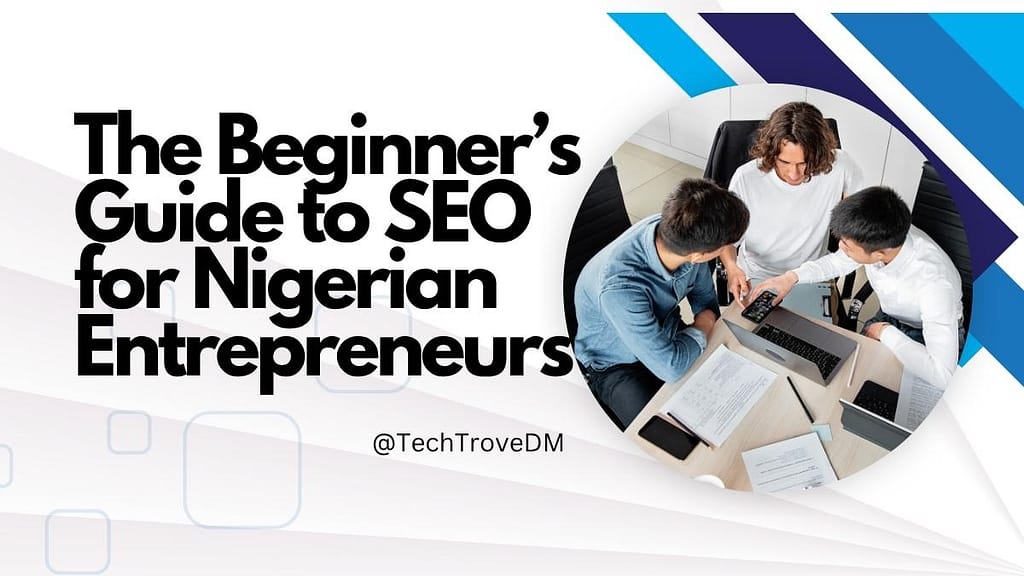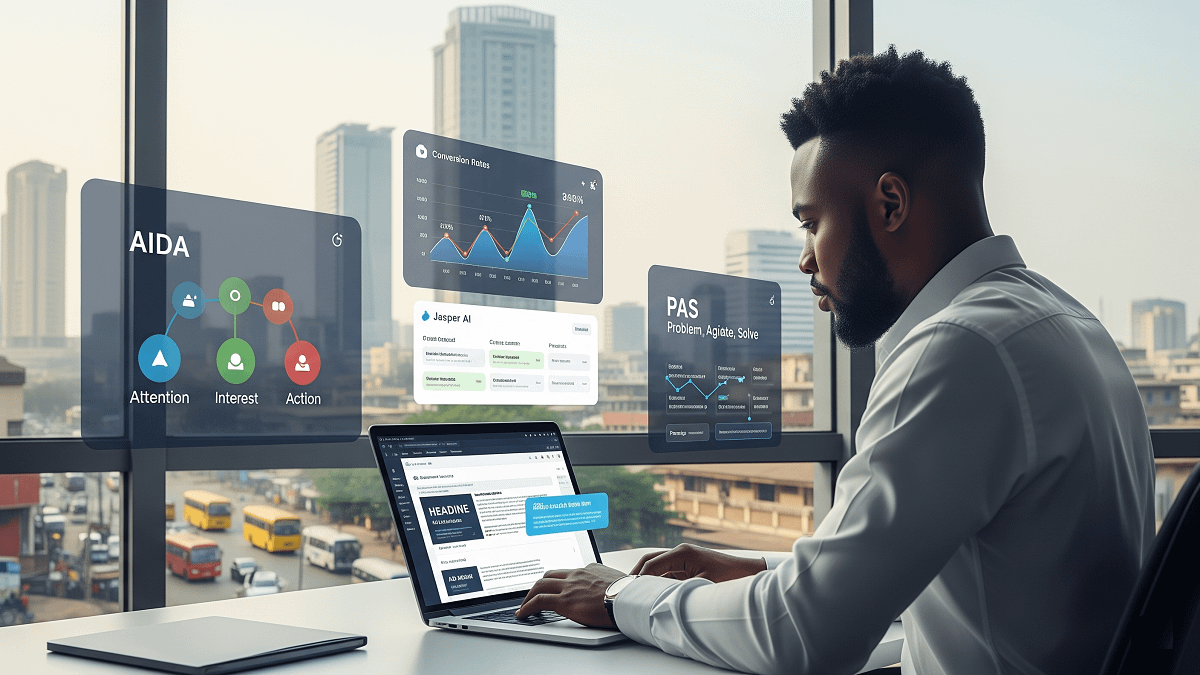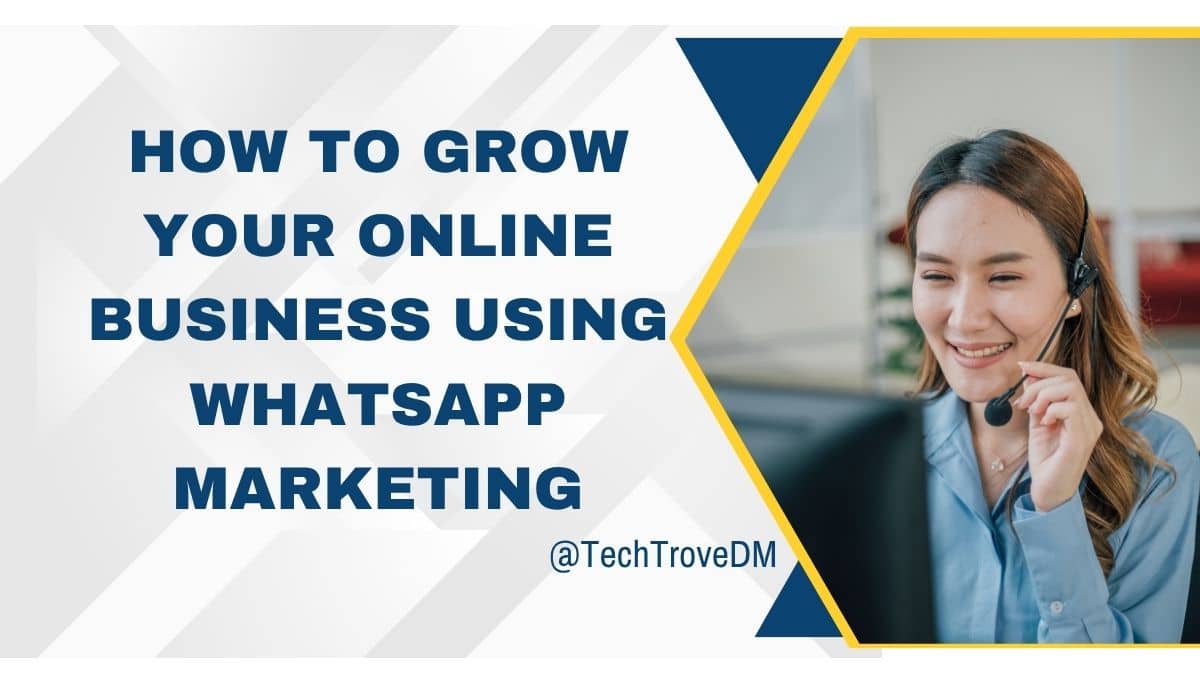Beginner’s Guide to SEO for Nigerian Entrepreneurs
For Nigerian entrepreneurs looking to boost their online visibility, Search Engine Optimization (SEO) is a powerful and cost-effective strategy. This beginner’s guide will walk you through the essential steps to get started with SEO in Nigeria.
What is SEO and Why is it Important for Nigerian Businesses?
SEO stands for Search Engine Optimization. It’s the process of optimizing your website to rank higher in search engine results (like Google, Bing) for relevant queries. For Nigerian businesses, effective SEO means:
- Increased Online Visibility: Your business appears higher when potential customers search for products or services you offer.
- More Organic Traffic: People find your website naturally through search engines, leading to more visitors without paying for ads in Nigeria.
- Credibility and Trust: Higher rankings often translate to greater trust and authority in the eyes of Nigerian consumers.
- Targeted Customers: SEO helps you attract users actively looking for what you offer, leading to higher conversion rates and more sales in Nigeria.
- Cost-Effectiveness: While it requires consistent effort, organic SEO can be more sustainable and affordable in the long run compared to continuous paid advertising.

Key SEO Pillars for Nigerian Entrepreneurs
Here are the fundamental areas you need to focus on for digital marketing in Nigeria:
- Keyword Research: Understanding What Nigerians Search For
- Identify Relevant Keywords: Think like your potential customers. What search terms or search phrases would they use to find your business in Nigeria, products, or services?
- Local Keywords are Crucial: For Nigerian small businesses, incorporating location-specific keywords is vital. For example, instead of just “boutique,” use “boutique in Lagos” or “fashion store in Abuja.” Think “restaurants near me Owerri” or “best lawyers Port Harcourt.”
- Long-Tail Keywords: These are longer, more specific phrases (e.g., “affordable custom made suits in Port Harcourt“). They often have lower search volume but higher purchase intent, making them great for targeted traffic.
- Utilize Free Tools: Google Keyword Planner, Ubersuggest, and Google Trends Nigeria are excellent free tools to discover keywords, understand their search volume, and analyze competition.
- Consider Nigerian Vernacular/Slang: Sometimes, incorporating common Nigerian terms or Pidgin English (where appropriate for your brand and audience) can help you connect with a local audience (e.g., “Naija tech news,” “where to buy ankara fabric in Ibadan“).
- On-Page SEO: Optimizing Your Website Content
- Quality Content is King: Create informative, engaging, and valuable content that addresses your audience’s needs and interests. This could be blog posts for Nigerian businesses, product descriptions, service pages, etc.
- Naturally Include Keywords: Integrate your target SEO keywords naturally within your content, including meta titles, headings (H1, H2, H3), and throughout the body text. Avoid “keyword stuffing.”
- Compelling Meta Titles and Descriptions: These are the snippets users see in search results. Make them descriptive, include relevant keywords, and entice users to click. Keep meta titles under 60 characters and meta descriptions around 150-160 characters.
- Image Optimization: Compress images for faster website loading times and use descriptive alt text that includes keywords.
- Internal Linking: Link to other relevant pages within your website to improve navigation and distribute “link equity.”
- Mobile-Friendliness: A significant portion of Nigerian internet users access the web via mobile. Ensure your website is responsive and provides an excellent user experience on all devices.
- Page Speed: Optimize your website for fast loading times. Users (and search engines) prefer quick-loading sites. Tools like Google PageSpeed Insights can help you identify areas for improvement.
- User Experience (UX): A well-designed website that is easy to navigate, readable, and engaging will keep visitors on your site longer, sending positive signals to search engines.
- Local SEO: Dominating Your Neighborhood
- Google My Business (GMB): This is paramount for local businesses in Nigeria. Create and fully optimize your GMB profile with accurate business name, address, phone number (NAP consistency is key), hours of operation, photos, and relevant categories. Encourage customers to leave Google reviews.
- Local Citations and Directories: List your business on popular Nigerian business directories (e.g., VConnect, BusinessList, ConnectNigeria) and ensure your NAP information is consistent across all platforms.
- Location-Specific Content: Create blog posts or pages about local events in Lagos, news, or specific problems relevant to your local Nigerian audience.
- Encourage Customer Reviews: Positive customer reviews on Google and other platforms significantly boost local SEO and build trust. Respond to all reviews, positive or negative.
- Off-Page SEO: Building Authority and Trust
- Link Building: Acquire high-quality backlinks from reputable Nigerian websites (e.g., local news sites, relevant blogs, industry associations). This signals to search engines that your site is trustworthy and authoritative.
- Guest Blogging: Write articles for other relevant websites in your niche, including a backlink to your site.
- Social Media Engagement: While social media signals aren’t direct ranking factors, an active social media presence in Nigeria can increase brand visibility, drive traffic to your website, and indirectly lead to backlinks and mentions. Share your content regularly.
- Influencer Outreach: Collaborate with Nigerian influencers to promote your content and acquire valuable mentions or backlinks.
- Technical SEO: The Backend Essentials
- SSL Certificate (HTTPS): Ensure your website has an SSL certificate for secure Browse (HTTPS). Google prioritizes secure websites.
- XML Sitemaps: Create and submit an XML sitemap to Google Search Console and Bing Webmaster Tools. This helps search engines crawl and index your website more efficiently.
- Robot.txt File: This file tells search engine crawlers which pages they can or cannot access on your site.
- Crawlability and Indexability: Ensure search engines can easily find and index all the important pages on your website. Use Google Search Console to monitor for any crawling or indexing issues.

Essential SEO Tools for Nigerian Entrepreneurs
- Google Search Console (Free): Monitor your site’s performance in Google search results, identify indexing issues, and submit sitemaps.
- Google Analytics (Free): Track website traffic, user behavior, and conversion rates.
- Google My Business (Free): Manage your local business listing on Google Maps and Search.
- Google Keyword Planner (Free): For keyword research and planning content strategies.
- Ubersuggest (Free & Paid): Beginner-friendly tool for keyword ideas, content suggestions, and site audits.
- Yoast SEO (WordPress Plugin, Free & Paid): If you use WordPress, this plugin helps with on-page SEO elements like meta titles, descriptions, and sitemaps.
SEO is a Continuous Journey for Nigerian Businesses
SEO for small businesses in Nigeria is not a one-time task. It requires consistent effort, monitoring, and adaptation.
- Monitor Performance: Regularly check your rankings, traffic, and other metrics using tools like Google Analytics and Search Console.
- Analyze and Adapt: Understand what’s working and what’s not, and adjust your strategies accordingly.
- Stay Updated: Search engine algorithms evolve constantly. Stay informed about the latest SEO trends in Nigeria and best SEO practices.
By focusing on these key areas, Nigerian entrepreneurs can effectively leverage SEO to increase their online visibility, attract more targeted customers, and grow their businesses in the competitive Nigerian digital landscape.






